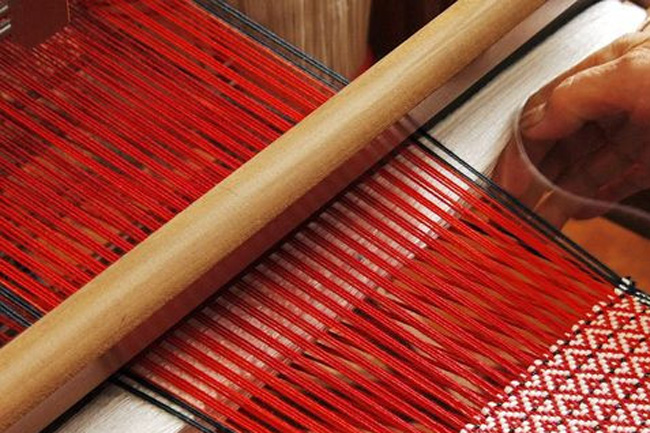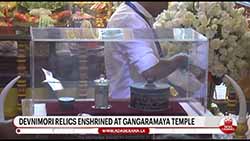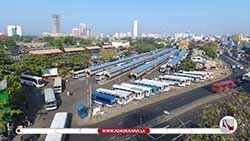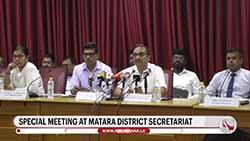Sri Lanka’s ‘Dumbara Weaving’ on UNSECO’ intangible heritage list
December 15, 2021 10:50 am
Sri Lanka’s traditional craftsmanship of making Dumbara Ratā Kalāla (Dumbara Weaving) has been recognized at the UNESCO World Cultural Heritage.
The recognition was given at the 16th Session of the Intergovernmental Committee for the Safeguarding of the Intangible Cultural Heritage, in Paris, France. The event is taking place from 13 to 18 December, 2021.
The committee members include Azerbaijan, Botswana, Brazil, Cameroon, China, Côte d’Ivoire, Czechia, Djibouti, Jamaica, Japan, Kazakhstan, Kuwait, Morocco, Netherlands, Panama, Peru, Poland, Republic of Korea, Rwanda, Saudi Arabia, Sri Lanka, Sweden, Switzerland and Togo.
Punchi Nilame Meegaswatte, Secretary-General - Sri Lanka National Commission for UNESCO, chairs this annual gathering which brings together hundreds of participants – representatives of States Parties, non-governmental organizations, cultural institutions and other stakeholders – from across the globe.
After Sri Lanka submitted its nomination, the evaluation body recommended the inscription of the traditional craftsmanship of making Dumbara Ratā Kalāla on the Representative List of the Intangible Cultural Heritage of Humanity, as it satisfies the relevant criteria.
The recommendations and decisions of the evaluation body were taken up for examination by the committee at its ongoing 16th session.
The evaluation body said, at the local level, the inscription will ensure greater awareness about the importance of the element and crafts in general and their role in the local economy and environment. At the national level, inscription would place the element at the center of the National Crafts Council’s (NCC) National Handicrafts Exhibition and Presidential Awards Ceremony, as well as draw attention to traditional craft as a whole. At the international level, the inscription would promote awareness regarding sustainable use of natural resources and gender equality in the context of the element. Inscription would also improve dialogue among communities living in the region while promoting respect for cultural diversity through appreciation of the Buddhist or Hindu symbolic meanings of the element.
It commended the state party for presenting the nomination file that demonstrates a strong awareness of the links between intangible cultural heritage and sustainable development and for its efforts to address the wellbeing and welfare of the community through proposed social security measures related to health and disability benefits.
Further, the evaluation body has encouraged the state party to pay attention to the potential risk of over-commercialization of the element and to ensure that safeguarding measures adequately address such risks.
Sri Lankan Dumbara Ratā Kalāla, or Dumbara mats, are traditional hand-made mats used as wall hangings, tapestries or cushion covers. The mats are made in two villages - Kalasirigama and Alokagama - by a community called Kinnara that traditionally supplied ornamental mats to the royal palace as part of obligatory service to the crown and to ruling elites between the fifteenth and nineteenth centuries.
Today, artisans weave the mats for local buyers and tourists. Dumbara mats are made with the fibres of the Hana plant and decorated with symbolic motifs and designs.
The plant fibres are separated by pressing the leaf against a log with a sharp-edged piece of wood to scrape away the fleshy parts. The fibres are then washed, sun-dried, combed and dyed using traditional herbal dyes made with natural materials from the Dumbara valley.
The mat is created with a loom, and motifs and designs are added using a lath, a flat, narrow strip of wood with a hole at one end. The weaver inserts strands of fibre into the hole, then pulls the lath through the yarns on the loom to create the desired motif. Dumbara mats are a traditional item of great cultural significance for Sri Lankans, and the practice is transmitted from parents to children through observation and practice.












